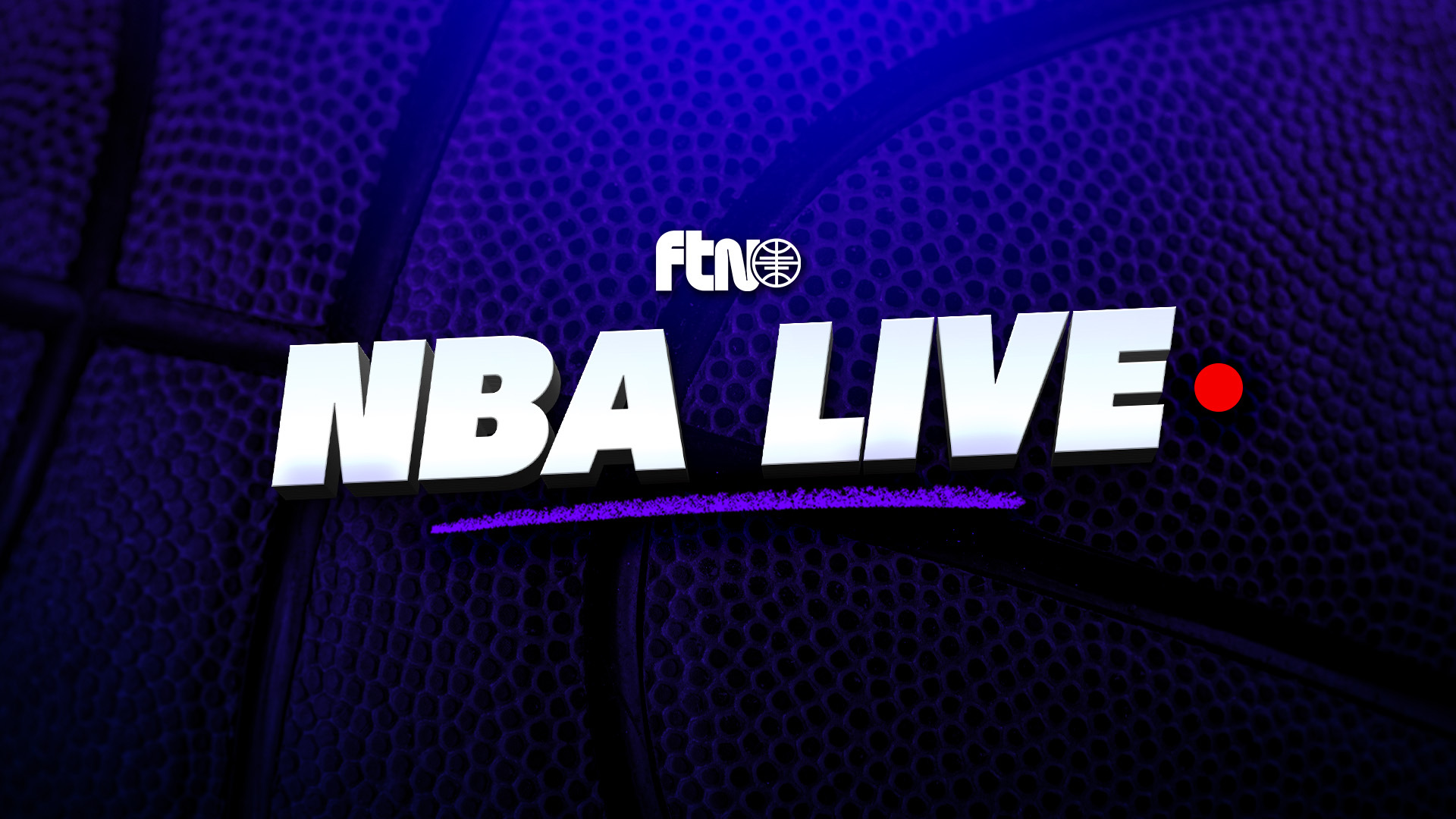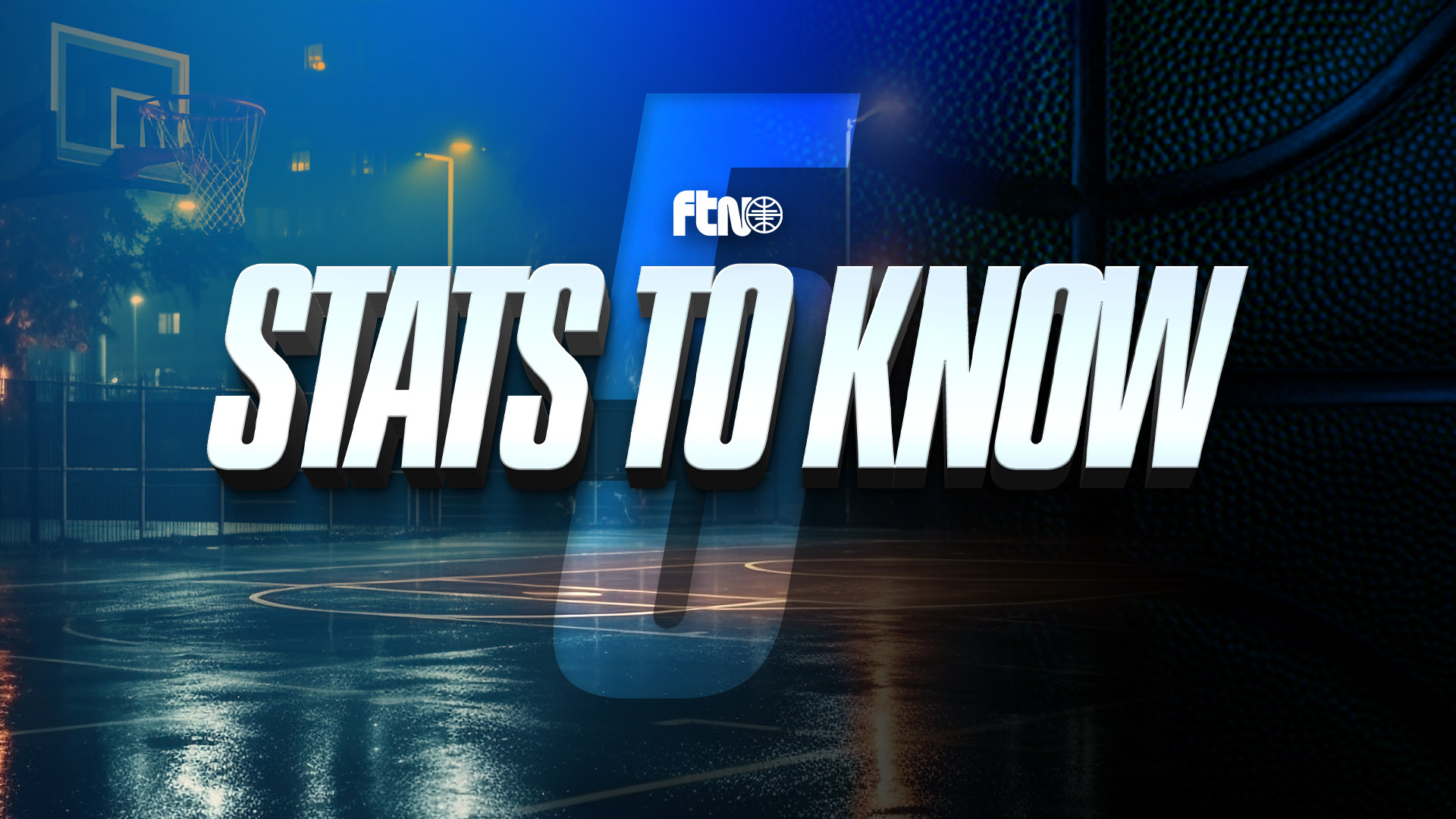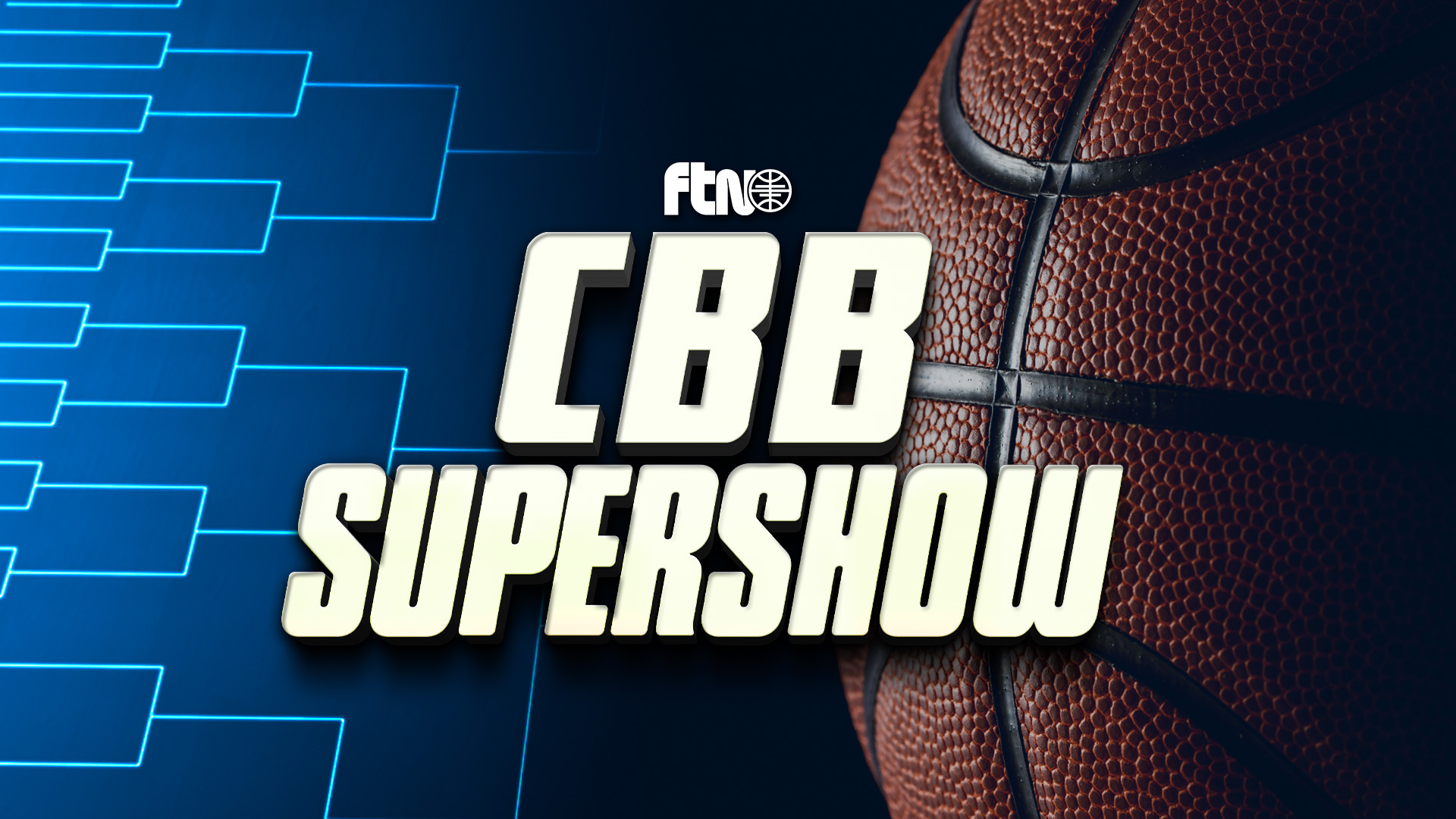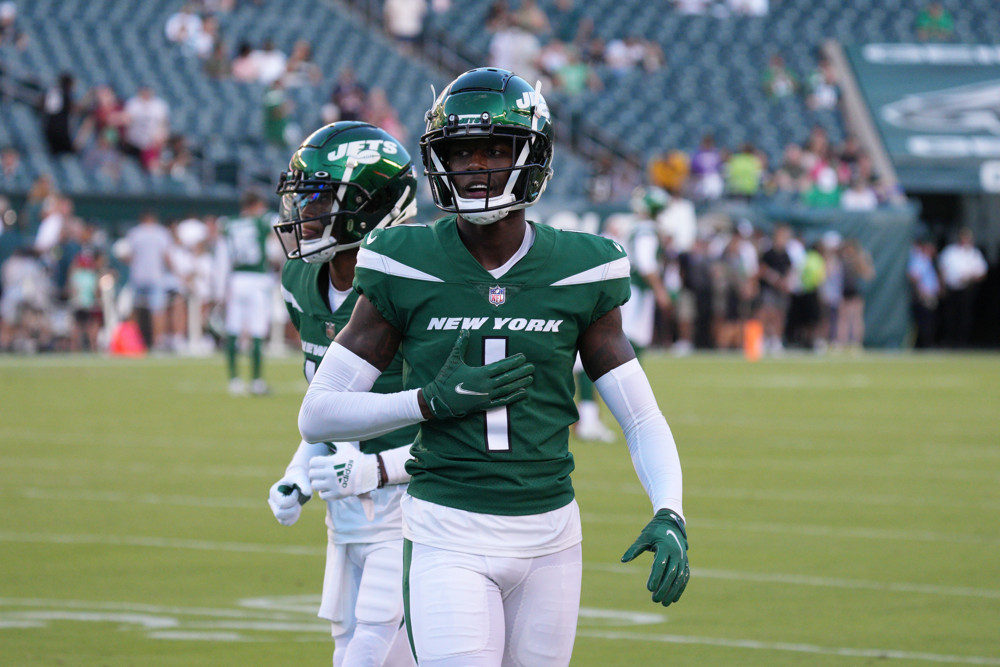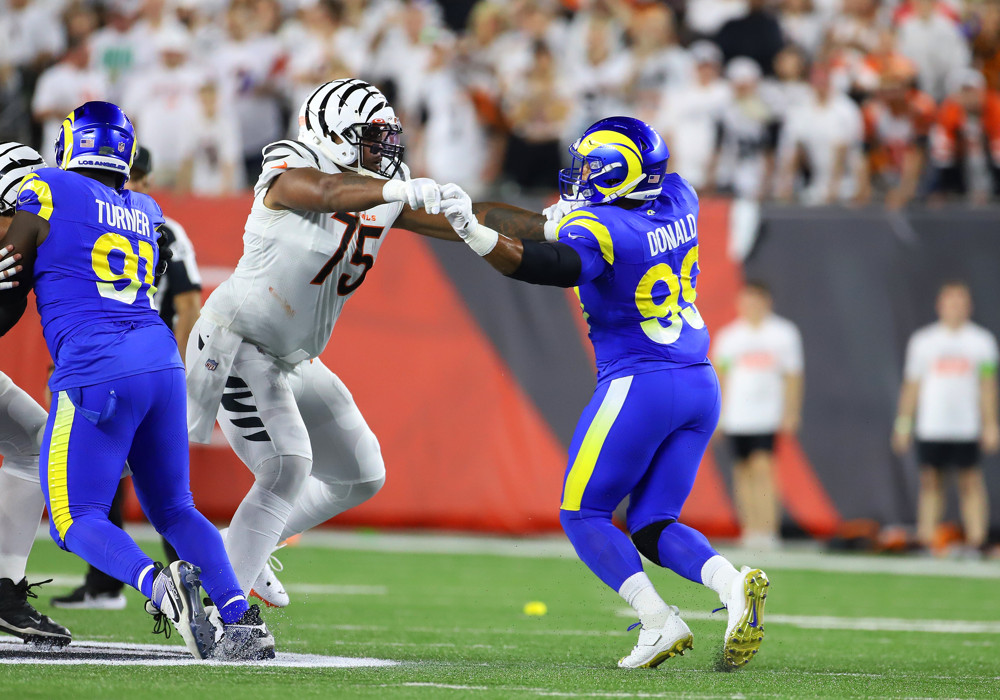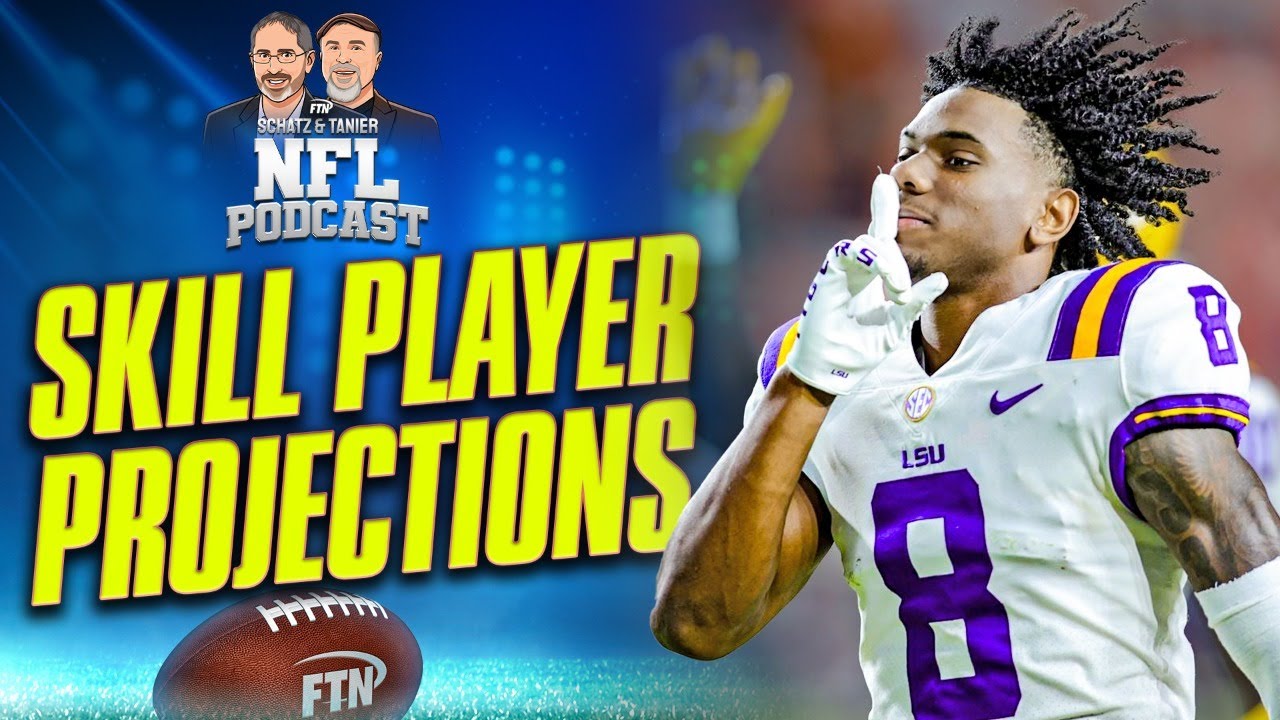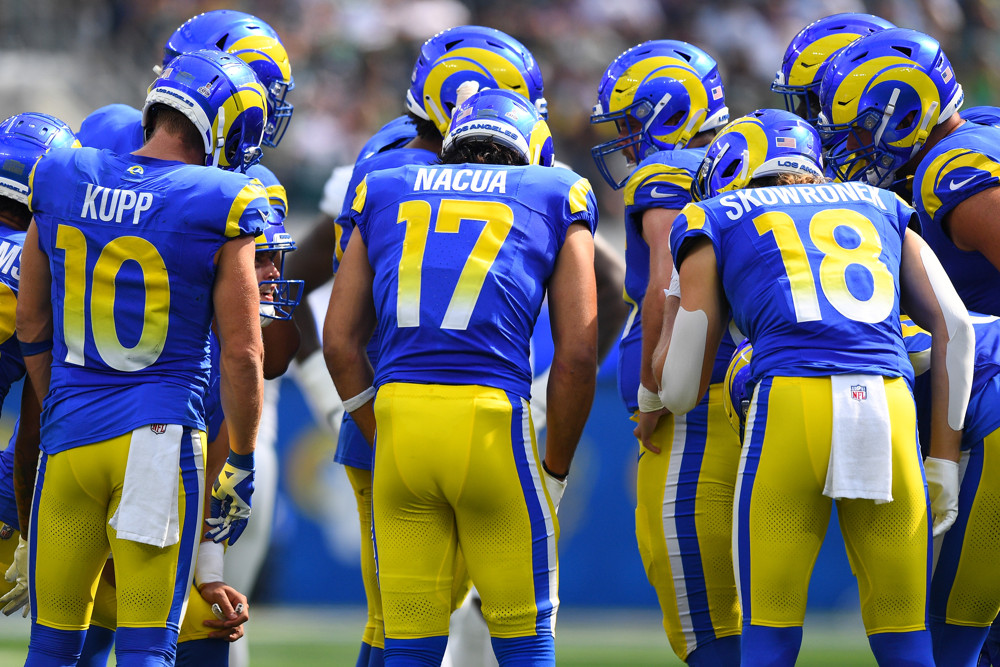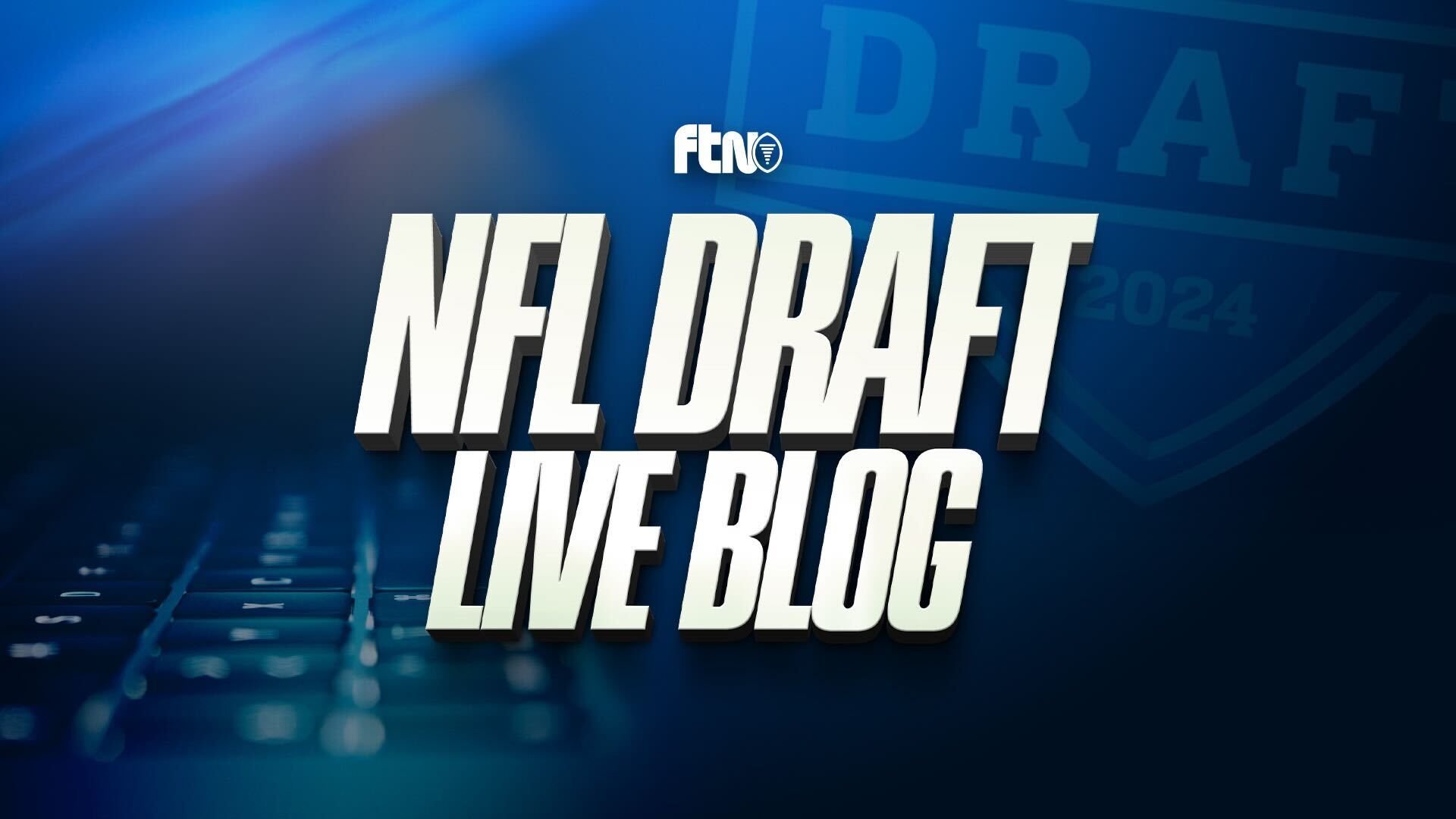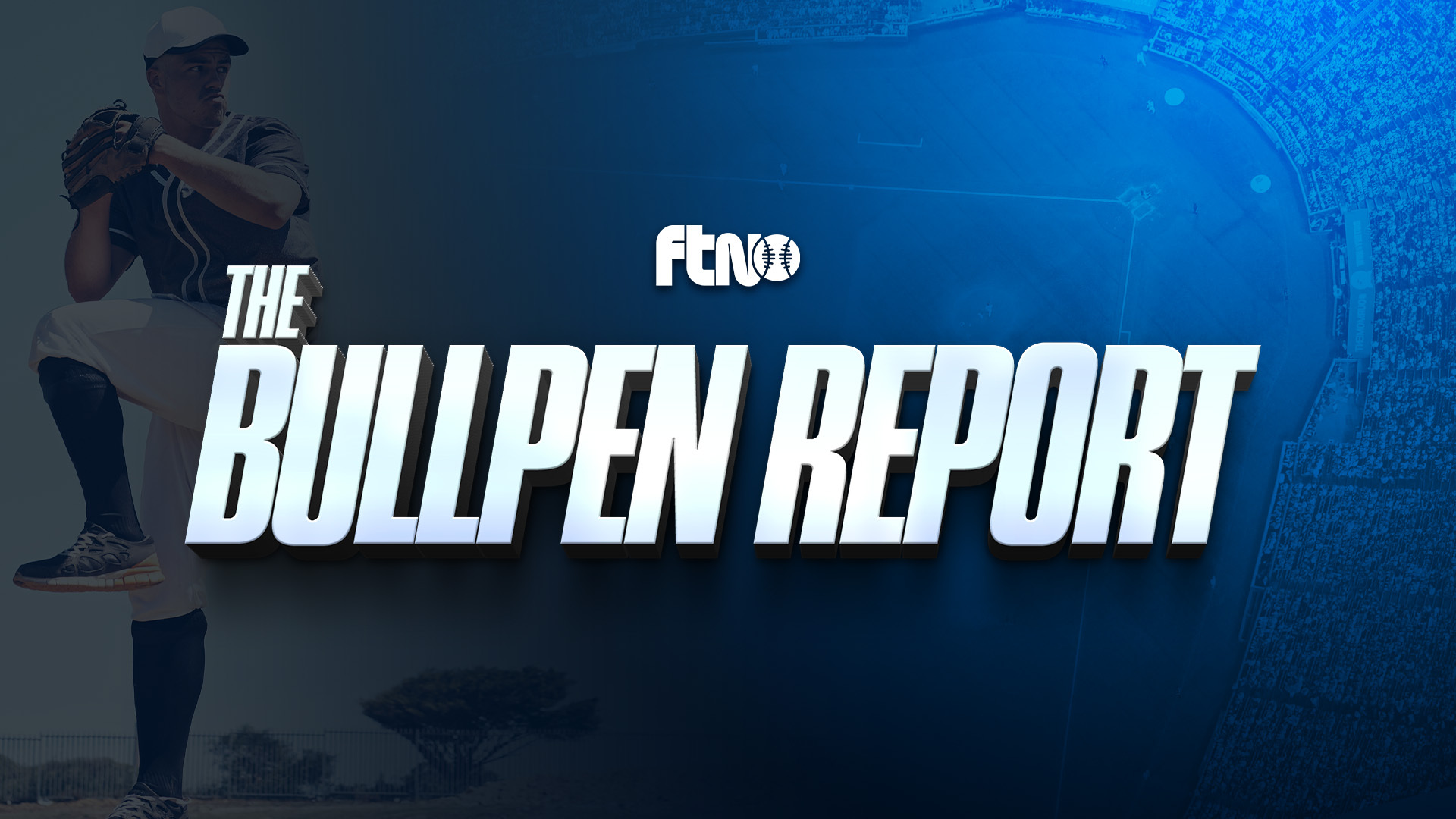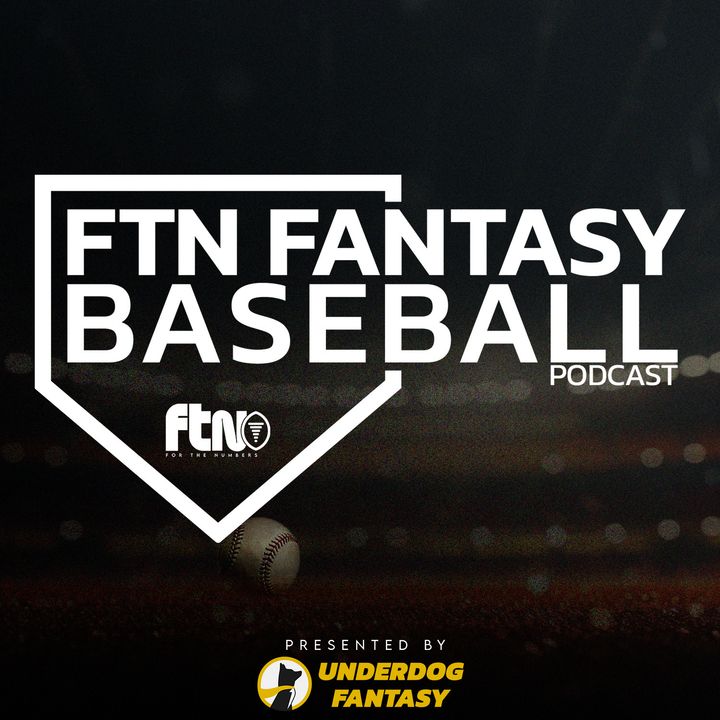
(The first part of this fantasy baseball article was originally published in February. See bottom for a full update and leaderboards.)
This is it, people. In the paraphrased words of King Leonidas, today is the day we fight, today is the day the win dies. Buckle up and take this definitive stand with me against fantasy baseball’s most glaring flaw: The dreaded and disparate win.
Anyone paying attention knew there was a problem years ago. Nowhere else in fantasy baseball do we reward poor performance. Batting average doesn’t budge on a walk or error; you can’t almost hit a home run or nearly get a save. But six earned runs allowed in a win by your fantasy opponent or your pitcher leaving a scoreless game empty-handed are unnecessary heartbreaks. Why have we settled on this objectively poor measure of skill? The problem has only grown. Pitching has become more specialized. The past several years brought us the inception, acceptance and eventual regular usage of openers.
As the problem grew more obvious, some tried improving the category, instituting quality starts in place of wins. While it offers some improvement, it happens the existing version of QS happens too frequently (between 20% and 30% more often than SP wins) and allows for potentially poor results. We need better.
We must detect and address any systemic defects that may be responsible for compromising the competitive balance. Below, I intend to not only expose the win’s weaknesses as a category but provide a viable, data-backed and wholly skill-based replacement. I understand my ambitions are high — we’re demolishing what we have down to the frames and starting over. Even if the finished product ends up looking a bit like the old one, we will know we can trust what’s going on behind the walls.
I’ve traveled down this path to dethrone the win once before, and a quick summary of my journey thus far is pertinent. A large percentage of leagues (mine and otherwise) shifted to quality starts over wins. At least by definition, a quality start is a function of performance, whereas a pitcher can technically give up a dozen earned runs and still get a win, while another can throw nine perfect innings and not get one.
This led to my initial decision to dissect and stratify the QS in an article last winter. If we fast forward to the product of that venture, we have the money start. Long story short, I combined distance, rarity and correlation to winning percentage in order to spotlight the best starts on an individual basis. In the age of advanced matchup analytics, bullpen specialization and quick hooks, I felt it was crucial to emphasize the completion of seven innings. However, as I tested my results this season, I found inefficiencies because of (you guessed it) wins. I should have picked up on using earned run average earlier. So let’s start fresh.
We’ll begin with the new, simpler money start, represented by a game started and:
- At least 7 innings pitched, no more than 2 earned runs allowed, or
- At least 8 innings pitched, no more than 3 earned runs allowed.
This type of framework proves to be extremely useful as far as player analysis for obvious reasons: We hadn’t previously quantified these premium starts, so of course accessing this sort of leaderboard proved beneficial. The highest possible ERA for a game under this classification is 3.38, a more respectable benchmark for excellence than the 4.50 maximum a quality start could imply. However, the money start did have a few issues in its effort to supplant the win, including not occurring frequently enough for categorization:
| TOTAL SP WINS |
MONEY STARTS |
|
| 2017 | 1640 | 789 |
| 2018 | 1515 | 751 |
| 2019 | 1449 | 645 |
| 2020 | 469 | 173 |
Even if we don’t have the volume to displace the win with the money start alone, I am happy with the descriptive ability of the metric — there is no circumstance where a money start can hurt you, unlike the quality start. Additionally, it’s invaluable in highlighting pitchers with high per-game ceilings. This becomes immediately actionable for streaming pitchers or drafting best ball leagues that specifically reward those top performances.
I knew in order to make it more prevalent, and therefore applicable as a roto category, I would have to expand the parameters. There are just not enough money starts to change an entire industry. So I looked back at the aforementioned piece and why something like the 7 IP/3 ER outcome was disallowed. It turns out it failed because of winning percentage (see table below). That specific outcome had one of the lowest win conversion percentages on the quality start board. So I eliminated it.
| 7+ IP 3 ER EVENTS |
WIN % 7+ IP 3 ER |
|
| 2017 | 107 | 42.99% |
| 2018 | 77 | 38.96% |
| 2019 | 71 | 30.99% |
| 2020 | 18 | 50.00% |
The first mistake I made was attaching the win in the first place, and perhaps an argument could be made to include this 7 IP/3 ER outcome as a money start in the future. Removing this distorted lens of wins brings new clarity, leaving the sole focus on what should matter most: Performance. Seven-plus innings of work allowing no more than three runs yields an ERA no higher than 3.86. This would generally place a pitcher roughly in the top quarter percentile among relevant starters, a perfectly acceptable benchmark for a performance-based reward. Having simply shifted focus away from wins and toward ERA seems to offer us an immediate solution for our issue of occurrence.
The second issue with money starts as a category emerges above: The arbitrary assignment of seven innings as a prerequisite. Again, I’m glad I did this work and that the stat exists as constituted; it’s incredibly important to identify distance in today’s environment. However, I realize now I should have taken a step back for a broader perspective. Before indiscriminately excluding anything under 7 IP, I should have measured it up historically against the field. If the best starts have two aspects (distance and runs), then each should stand on its own as a test of its validity. Let’s take a look at where going at least 6 IP slots a pitcher purely from a distance standpoint compared to the field since 2017.
| TOTAL GS |
TOTAL +6IP |
TOTAL +6IP (%) |
|
| 2017 | 4860 | 2441 | 50.23% |
| 2018 | 4862 | 2275 | 46.79% |
| 2019 | 4858 | 2085 | 42.92% |
| 2020 | 920 | 572 | 62.17% |
The total of outings of at least 6 IP outings is 47.6% over 15,500 games started, so I’m ignoring the anomalous 62% in the shortened 2020. Each sufficient full-season sample shows a steady and noteworthy 4% decline year-over-year in such outings. It’s clear to me now that 6 IP should qualify, providing the earned runs are in check. Let’s take a closer look at ERA by distance/run outcome after six innings pitched.
| 6.0 IP | 6.1 IP | 6.2 IP | |
| 0 ER | 0.00 | 0.00 | 0.00 |
| 1 ER | 1.50 | 1.42 | 1.35 |
| 2 ER | 3.00 | 2.84 | 2.70 |
| 3 ER | 4.50 | 4.26 | 4.05 |
From this table, we get a good visualization of how impactful the extra run allowed is when compared to an extra out or even inning. If we’re trying to set apart the best starts, it feels natural to lop off the bottom row and any ERAs above 4.00 with it. This not only coincides with our earlier assertions, but it also keeps the integrity of our desired results in place. It also adds four more distance/run outcomes to our total as we try to create a greater parity of occurrence to wins. Let’s check how frequently these ‘’New Quality Starts’’ (the previous including ERAs over 4.00 are no longer quality) occurred. Ignore the unimaginative name for now.
| 6+ IP 0-2 ER |
7+ IP 3 ER |
NEW QUALITY STARTS |
NEW QUALITY STARTS (%) |
|
| 2017 | 905 | 107 | 1012 | 20.82% |
| 2018 | 934 | 77 | 1011 | 20.79% |
| 2019 | 837 | 71 | 908 | 18.69% |
| 2020 | 276 | 18 | 294 | 31.96% |
The first thing that jumps out for me is the sheer relative mass of the sample. I’m kicking myself for having missed this in the past. This is so critical to the weight of our current claim — one of the major counterpoints to replacing the win being the necessity for sufficient results.
Let’s add our performance-based new quality starts to money starts in order to create the “plus start” and see how they stack up to total wins. This is the stat we want to be focusing on as roto players.
| TOTAL SP WINS |
MONEY STARTS |
NEW QUALITY STARTS |
PLUS STARTS |
|
| 2017 | 1640 | 789 | 1012 | 1801 |
| 2018 | 1515 | 751 | 1011 | 1762 |
| 2019 | 1449 | 645 | 908 | 1553 |
| 2020 | 469 | 173 | 294 | 467 |
Wow.
I would leave a bunch of blank spaces if I knew you’d think that meant I was speechless. Why? Well, we’ve managed to take a half-century-old, flawed stat with an excessive (but universally accepted) failure rate and replace it with a 100% performance-backed metric; All without diminishing the supply. In fact, we actually would have been able to produce anywhere from an extra 7% to 16% of desired outcomes, again, every one of which based on performance.
As if this couldn’t be any more impactful, it also completely removes errors from the fantasy game. We all know unearned runs don’t affect ERA, but they often impact the decision. Well, we can easily remove this as well with a simple categorical shift.
A great lawyer once wrote that to win an argument, you have to anticipate the opposition’s counter and be ready for it:
- We’ve highlighted the flaws in the win’s accounting, susceptibility to outside variables and the frequency at which it misfires. Each of these failings is in stark contrast to the pure performance base of the plus start.
- Then we were told quality starts happen too often, and money starts don’t happen often enough. Well, we cleared that hurdle as well with the plus start. We not only matched the total, but we replaced the existing undeserved wins with premium outings.
- The final place for purists to hide is in that dark corner called tradition. Sometimes the loudest argument is ‘’Because it’s always been that way!’’ Well, I’m sorry to say, but that’s the last wobbly leg you have to stand on. There’s quite literally not a single reason, outside of stubborn pride, to continue using the win in fantasy baseball. Embrace the categorical shift, or kindly refute this argument.
In conclusion, the plus start is the quality start minus a single outcome of 6 IP/3 ER (but if I said it that way it would have been no fun). I mentioned at the outset that sometimes in a building rip-out the finished product may resemble the original, except with a renewed confidence in what’s behind the walls. I hope I have given you the confidence to demand change. If you get blowback for your efforts, tell them you have the receipts and show them this article.
Thanks again for following along, I would love your feedback at @MLBMovingAvg.
July update:
My oh my, how the time does fly! Welcome back. I truly appreciate all the incredible support as we take this wild ride together through the 2021 MLB season. Thank you sincerely for picking up what I’ve been putting down; we’ve not only made money, but we’re having fun doing it. We closed the first half up over 8% profit year to date on FTN Bets, and an incredible +8,000% (yes, you read that correctly) on Jock Market.
Sign up to JockMKT and get a free match up to $50 using promocode FTN.
Time is always of the essence in-season, so let’s get right down to business. We’re already at the All-Star break, with half of the season in the books. When we last met, I left you with my best argument to replace fantasy baseball’s most flawed categorical stat, the win. I also promised you I would revisit our new Plus Quality Start during the recess to offer perspective on how categories could (or should) look. Remember, the Plus Quality Start removes all subjective basis from calculation with a sufficient benchmark for distance but also for ERA not provided in the current construct.
If you’re unfamiliar with any of the rationale or mathematics behind this exercise, I invite you to read the full article above or check out my video presentation from the most recent PitchCon event Lose The Win. I understand asking the public to structurally change a 50-year-old game is a tall ask. However, I believe in the strength of this case. It can impact positive change by not only making the game more “fair,” but having it more properly reflect the quality of the analysis, outcomes and subsequent decisions we spend countless hours agonizing over.
So for your viewing pleasure, here is your custom MLBMA Plus Quality Start leaderboards for 2021 so far:
| Player, 2021 | WINS | EXISTING QS |
PLUS QUALITY STARTS (QS+) |
Difference in W – QS+ (Higher the total, luckier the SP) |
| Martin Perez | 7 | 3 | 2 | 5 |
| Alex Cobb | 6 | 3 | 2 | 4 |
| Aaron Civale | 10 | 7 | 7 | 3 |
| Julio Urias | 10 | 8 | 7 | 3 |
| Steven Matz | 7 | 4 | 4 | 3 |
| Tyler Mahle | 7 | 4 | 4 | 3 |
| Brad Keller | 6 | 4 | 3 | 3 |
| Johnny Cueto | 6 | 4 | 3 | 3 |
| Tarik Skubal | 5 | 4 | 2 | 3 |
| Bruce Zimmermann | 3 | 2 | 0 | 3 |
| Mitch Keller | 3 | 0 | 0 | 3 |
| Nathan Eovaldi | 9 | 7 | 7 | 2 |
| Jack Flaherty | 8 | 7 | 6 | 2 |
| Dylan Cease | 7 | 5 | 5 | 2 |
| Frankie Montas | 7 | 7 | 5 | 2 |
| Drew Smyly | 6 | 5 | 4 | 2 |
| Eduardo Rodriguez | 6 | 5 | 4 | 2 |
| Mike Minor | 6 | 4 | 4 | 2 |
| Adrian Houser | 5 | 3 | 3 | 2 |
| Justus Sheffield | 5 | 3 | 3 | 2 |
| Griffin Canning | 4 | 3 | 2 | 2 |
| Jameson Taillon | 4 | 3 | 2 | 2 |
| John Gant | 4 | 2 | 2 | 2 |
| Kenta Maeda | 4 | 2 | 2 | 2 |
| Spencer Turnbull | 4 | 4 | 2 | 2 |
| Jake Odorizzi | 3 | 1 | 1 | 2 |
| Jeff Hoffman | 3 | 1 | 1 | 2 |
| Matt Harvey | 3 | 1 | 1 | 2 |
| Shane McClanahan | 3 | 2 | 1 | 2 |
| Chase Anderson | 2 | 0 | 0 | 2 |
| Josh Fleming | 2 | 1 | 0 | 2 |
| Kohei Arihara | 2 | 0 | 0 | 2 |
| Paolo Espino | 2 | 0 | 0 | 2 |
| Ryan Weathers | 2 | 0 | 0 | 2 |
| Anthony DeSclafani | 9 | 9 | 8 | 1 |
| Lance Lynn | 8 | 8 | 7 | 1 |
| Alex Wood | 7 | 6 | 6 | 1 |
| Charlie Morton | 7 | 7 | 6 | 1 |
| Chris Flexen | 7 | 7 | 6 | 1 |
| Hyun Jin Ryu | 7 | 8 | 6 | 1 |
| Jose Berrios | 7 | 7 | 6 | 1 |
| Nick Pivetta | 7 | 6 | 6 | 1 |
| Taijuan Walker | 7 | 6 | 6 | 1 |
| Aaron Nola | 6 | 7 | 5 | 1 |
| Lance McCullers Jr. | 6 | 6 | 5 | 1 |
| Luis Garcia | 6 | 5 | 5 | 1 |
| Rich Hill | 6 | 5 | 5 | 1 |
| Jake Arrieta | 5 | 4 | 4 | 1 |
| Zach Davies | 5 | 4 | 4 | 1 |
| Adbert Alzolay | 4 | 4 | 3 | 1 |
| Corey Kluber | 4 | 3 | 3 | 1 |
| Erick Fedde | 4 | 3 | 3 | 1 |
| J.A. Happ | 4 | 3 | 3 | 1 |
| Logan Webb | 4 | 4 | 3 | 1 |
| Madison Bumgarner | 4 | 3 | 3 | 1 |
| Vladimir Gutiérrez | 4 | 4 | 3 | 1 |
| Blake Snell | 3 | 2 | 2 | 1 |
| Cristian Javier | 3 | 3 | 2 | 1 |
| Dane Dunning | 3 | 2 | 2 | 1 |
| Kwang Hyun Kim | 3 | 2 | 2 | 1 |
| Ross Stripling | 3 | 2 | 2 | 1 |
| Trevor Williams | 3 | 2 | 2 | 1 |
| Cody Poteet | 2 | 1 | 1 | 1 |
| Wily Peralta | 2 | 1 | 1 | 1 |
| Zach Thompson | 2 | 2 | 1 | 1 |
| Aaron Sanchez | 1 | 0 | 0 | 1 |
| Alec Mills | 1 | 0 | 0 | 1 |
| Anthony Kay | 1 | 0 | 0 | 1 |
| Bailey Ober | 1 | 0 | 0 | 1 |
| Chase De Jong | 1 | 0 | 0 | 1 |
| Daniel Ponce de Leon | 1 | 0 | 0 | 1 |
| Dinelson Lamet | 1 | 0 | 0 | 1 |
| Eli Morgan | 1 | 0 | 0 | 1 |
| Jesus Luzardo | 1 | 1 | 0 | 1 |
| Julio Teheran | 1 | 0 | 0 | 1 |
| Justin Dunn | 1 | 0 | 0 | 1 |
| Kohl Stewart | 1 | 0 | 0 | 1 |
| Kyle Muller | 1 | 0 | 0 | 1 |
| Logan Allen | 1 | 0 | 0 | 1 |
| Matt Manning | 1 | 0 | 0 | 1 |
| Max Kranick | 1 | 0 | 0 | 1 |
| Michael Fulmer | 1 | 0 | 0 | 1 |
| Michael Kopech | 1 | 0 | 0 | 1 |
| Spenser Watkins | 1 | 0 | 0 | 1 |
| Triston McKenzie | 1 | 0 | 0 | 1 |
| Kyle Hendricks | 10 | 12 | 10 | 0 |
| Dallas Keuchel | 6 | 6 | 6 | 0 |
| Lucas Giolito | 6 | 8 | 6 | 0 |
| Robbie Ray | 6 | 11 | 6 | 0 |
| Framber Valdez | 5 | 6 | 5 | 0 |
| Jon Gray | 5 | 7 | 5 | 0 |
| Max Fried | 5 | 6 | 5 | 0 |
| Patrick Corbin | 5 | 7 | 5 | 0 |
| Chris Paddack | 4 | 5 | 4 | 0 |
| Danny Duffy | 4 | 4 | 4 | 0 |
| Garrett Richards | 4 | 4 | 4 | 0 |
| Huascar Ynoa | 4 | 4 | 4 | 0 |
| James Kaprielian | 4 | 5 | 4 | 0 |
| Jordan Lyles | 4 | 6 | 4 | 0 |
| Brady Singer | 3 | 5 | 3 | 0 |
| Ryan Yarbrough | 3 | 5 | 3 | 0 |
| Vince Velasquez | 3 | 3 | 3 | 0 |
| Brett Anderson | 2 | 2 | 2 | 0 |
| Bryse Wilson | 2 | 2 | 2 | 0 |
| Jon Lester | 2 | 2 | 2 | 0 |
| Jorge Lopez | 2 | 3 | 2 | 0 |
| Logan Gilbert | 2 | 2 | 2 | 0 |
| Luke Weaver | 2 | 2 | 2 | 0 |
| Patrick Sandoval | 2 | 2 | 2 | 0 |
| Jakob Junis | 1 | 1 | 1 | 0 |
| Kolby Allard | 1 | 2 | 1 | 0 |
| Matt Peacock | 1 | 1 | 1 | 0 |
| Michael Wacha | 1 | 1 | 1 | 0 |
| Randy Dobnak | 1 | 1 | 1 | 0 |
| Riley Smith | 1 | 1 | 1 | 0 |
| Sammy Long | 1 | 1 | 1 | 0 |
| Stephen Strasburg | 1 | 1 | 1 | 0 |
| Tony Santillan | 1 | 1 | 1 | 0 |
| Trevor Cahill | 1 | 1 | 1 | 0 |
| Wil Crowe | 1 | 1 | 1 | 0 |
| Mike Fiers | 0 | 1 | 0 | 0 |
| Aaron Ashby | 0 | 0 | 0 | 0 |
| Adam Plutko | 0 | 0 | 0 | 0 |
| Adrián Morejón | 0 | 0 | 0 | 0 |
| Alec Bettinger | 0 | 0 | 0 | 0 |
| Alex Young | 0 | 0 | 0 | 0 |
| Andrew Kittredge | 0 | 0 | 0 | 0 |
| Austin Voth | 0 | 0 | 0 | 0 |
| Braxton Garrett | 0 | 0 | 0 | 0 |
| Brent Honeywell Jr. | 0 | 0 | 0 | 0 |
| Brent Suter | 0 | 0 | 0 | 0 |
| Cal Quantrill | 0 | 0 | 0 | 0 |
| Chris Archer | 0 | 0 | 0 | 0 |
| Cody Ponce | 0 | 0 | 0 | 0 |
| Collin McHugh | 0 | 0 | 0 | 0 |
| Conner Menez | 0 | 0 | 0 | 0 |
| Corbin Martin | 0 | 0 | 0 | 0 |
| Corey Oswalt | 0 | 0 | 0 | 0 |
| Craig Stammen | 0 | 0 | 0 | 0 |
| Daniel Castano | 0 | 0 | 0 | 0 |
| Daniel Lynch | 0 | 0 | 0 | 0 |
| Danny Coulombe | 0 | 0 | 0 | 0 |
| David Hale | 0 | 0 | 0 | 0 |
| David Phelps | 0 | 0 | 0 | 0 |
| David Price | 0 | 0 | 0 | 0 |
| Deivi Garcia | 0 | 0 | 0 | 0 |
| Derek Holland | 0 | 0 | 0 | 0 |
| Drew Rasmussen | 0 | 0 | 0 | 0 |
| Drew Smith | 0 | 0 | 0 | 0 |
| Edwin Uceta | 0 | 0 | 0 | 0 |
| Elieser Hernandez | 0 | 0 | 0 | 0 |
| Erik Swanson | 0 | 0 | 0 | 0 |
| Ervin Santana | 0 | 0 | 0 | 0 |
| Garrett Cleavinger | 0 | 0 | 0 | 0 |
| Griffin Jax | 0 | 0 | 0 | 0 |
| Hyeon-jong Yang | 0 | 0 | 0 | 0 |
| Jackson Kowar | 0 | 0 | 0 | 0 |
| Jake Faria | 0 | 0 | 0 | 0 |
| James Paxton | 0 | 0 | 0 | 0 |
| Jefry Rodriguez | 0 | 0 | 0 | 0 |
| Jerad Eickhoff | 0 | 0 | 0 | 0 |
| Jesse Chavez | 0 | 0 | 0 | 0 |
| Jhoulys Chacin | 0 | 0 | 0 | 0 |
| Jimmy Lambert | 0 | 0 | 0 | 0 |
| Jimmy Nelson | 0 | 0 | 0 | 0 |
| Joey Lucchesi | 0 | 0 | 0 | 0 |
| John Curtiss | 0 | 0 | 0 | 0 |
| Jon Duplantier | 0 | 0 | 0 | 0 |
| Jordan Holloway | 0 | 0 | 0 | 0 |
| Jordan Yamamoto | 0 | 0 | 0 | 0 |
| Jose De Leon | 0 | 0 | 0 | 0 |
| Jose Quintana | 0 | 0 | 0 | 0 |
| Jose Suarez | 0 | 0 | 0 | 0 |
| Junior Guerra | 0 | 0 | 0 | 0 |
| Keegan Akin | 0 | 0 | 0 | 0 |
| Keegan Thompson | 0 | 0 | 0 | 0 |
| Kyle Funkhouser | 0 | 0 | 0 | 0 |
| Kyle Wright | 0 | 0 | 0 | 0 |
| Kyle Zimmer | 0 | 0 | 0 | 0 |
| Lewis Thorpe | 0 | 0 | 0 | 0 |
| Ljay Newsome | 0 | 0 | 0 | 0 |
| Luis Patino | 0 | 0 | 0 | 0 |
| Matt Moore | 0 | 0 | 0 | 0 |
| Michael King | 0 | 0 | 0 | 0 |
| Miguel Castro | 0 | 0 | 0 | 0 |
| Miguel Diaz | 0 | 0 | 0 | 0 |
| Miguel Yajure | 0 | 0 | 0 | 0 |
| Miles Mikolas | 0 | 0 | 0 | 0 |
| Nate Pearson | 0 | 0 | 0 | 0 |
| Nestor Cortes Jr. | 0 | 0 | 0 | 0 |
| Nick Margevicius | 0 | 0 | 0 | 0 |
| Nick Neidert | 0 | 0 | 0 | 0 |
| Nick Nelson | 0 | 0 | 0 | 0 |
| Paul Campbell | 0 | 0 | 0 | 0 |
| Phil Maton | 0 | 0 | 0 | 0 |
| Robert Dugger | 0 | 0 | 0 | 0 |
| Robert Gsellman | 0 | 0 | 0 | 0 |
| Robert Stock | 0 | 0 | 0 | 0 |
| Ross Detwiler | 0 | 0 | 0 | 0 |
| Ryan Burr | 0 | 0 | 0 | 0 |
| Ryan Castellani | 0 | 0 | 0 | 0 |
| Sam Hentges | 0 | 0 | 0 | 0 |
| Scott Kazmir | 0 | 0 | 0 | 0 |
| Seth Frankoff | 0 | 0 | 0 | 0 |
| Spencer Howard | 0 | 0 | 0 | 0 |
| T.J. Zeuch | 0 | 0 | 0 | 0 |
| Tanner Houck | 0 | 0 | 0 | 0 |
| Tanner Roark | 0 | 0 | 0 | 0 |
| Taylor Hearn | 0 | 0 | 0 | 0 |
| Thomas Eshelman | 0 | 0 | 0 | 0 |
| Tommy Hunter | 0 | 0 | 0 | 0 |
| Tommy Milone | 0 | 0 | 0 | 0 |
| Tony Gonsolin | 0 | 0 | 0 | 0 |
| Travis Bergen | 0 | 0 | 0 | 0 |
| Travis Lakins | 0 | 0 | 0 | 0 |
| Trent Thornton | 0 | 0 | 0 | 0 |
| Tyler Alexander | 0 | 0 | 0 | 0 |
| Tyler Ivey | 0 | 0 | 0 | 0 |
| Tylor Megill | 0 | 0 | 0 | 0 |
| Victor Gonzalez | 0 | 0 | 0 | 0 |
| Wade LeBlanc | 0 | 0 | 0 | 0 |
| Wes Benjamin | 0 | 0 | 0 | 0 |
| Zac Lowther | 0 | 0 | 0 | 0 |
| Zack Godley | 0 | 0 | 0 | 0 |
| Zack Littell | 0 | 0 | 0 | 0 |
| Clayton Kershaw | 9 | 11 | 10 | -1 |
| Carlos Rodon | 7 | 8 | 8 | -1 |
| Shane Bieber | 7 | 11 | 8 | -1 |
| Austin Gomber | 6 | 8 | 7 | -1 |
| Jose Urquidy | 6 | 7 | 7 | -1 |
| Ian Anderson | 5 | 8 | 6 | -1 |
| Joe Musgrove | 5 | 7 | 6 | -1 |
| Joe Ross | 5 | 7 | 6 | -1 |
| Merrill Kelly | 5 | 7 | 6 | -1 |
| Andrew Heaney | 4 | 5 | 5 | -1 |
| Domingo German | 4 | 5 | 5 | -1 |
| JT Brubaker | 4 | 6 | 5 | -1 |
| Shohei Ohtani | 4 | 6 | 5 | -1 |
| Tyler Anderson | 4 | 6 | 5 | -1 |
| Zach Plesac | 4 | 5 | 5 | -1 |
| Eric Lauer | 3 | 4 | 4 | -1 |
| Jordan Montgomery | 3 | 6 | 4 | -1 |
| Michael Pineda | 3 | 4 | 4 | -1 |
| Matt Shoemaker | 2 | 3 | 3 | -1 |
| Dustin May | 1 | 2 | 2 | -1 |
| Kris Bubic | 1 | 2 | 2 | -1 |
| Kyle Freeland | 1 | 2 | 2 | -1 |
| Sonny Gray | 1 | 3 | 2 | -1 |
| Taylor Widener | 1 | 2 | 2 | -1 |
| Zac Gallen | 1 | 2 | 2 | -1 |
| J.C. Mejia | 0 | 1 | 1 | -1 |
| Johan Oviedo | 0 | 2 | 1 | -1 |
| Tucker Davidson | 0 | 2 | 1 | -1 |
| Chris Bassitt | 9 | 11 | 11 | -2 |
| Zack Greinke | 8 | 10 | 10 | -2 |
| Trevor Rogers | 7 | 9 | 9 | -2 |
| Cole Irvin | 6 | 9 | 8 | -2 |
| Sean Manaea | 6 | 9 | 8 | -2 |
| Wade Miley | 6 | 8 | 8 | -2 |
| Yusei Kikuchi | 6 | 11 | 8 | -2 |
| Casey Mize | 5 | 10 | 7 | -2 |
| Carlos Martinez | 4 | 7 | 6 | -2 |
| Alek Manoah | 2 | 4 | 4 | -2 |
| Chad Kuhl | 2 | 4 | 4 | -2 |
| Jose Urena | 2 | 4 | 4 | -2 |
| Chi Chi Gonzalez | 1 | 3 | 3 | -2 |
| Marco Gonzales | 1 | 3 | 3 | -2 |
| Caleb Smith | 0 | 2 | 2 | -2 |
| Dean Kremer | 0 | 2 | 2 | -2 |
| Trevor Bauer | 8 | 14 | 11 | -3 |
| Adam Wainwright | 7 | 10 | 10 | -3 |
| Freddy Peralta | 7 | 10 | 10 | -3 |
| Jacob deGrom | 7 | 10 | 10 | -3 |
| Max Scherzer | 7 | 10 | 10 | -3 |
| Yu Darvish | 7 | 10 | 10 | -3 |
| Marcus Stroman | 6 | 10 | 9 | -3 |
| Tyler Glasnow | 5 | 9 | 8 | -3 |
| John Means | 4 | 7 | 7 | -3 |
| Luis Castillo | 3 | 7 | 6 | -3 |
| Matthew Boyd | 3 | 6 | 6 | -3 |
| Antonio Senzatela | 2 | 6 | 5 | -3 |
| David Peterson | 2 | 6 | 5 | -3 |
| Dylan Bundy | 1 | 5 | 4 | -3 |
| Gerrit Cole | 8 | 12 | 12 | -4 |
| Walker Buehler | 8 | 14 | 12 | -4 |
| German Marquez | 7 | 12 | 11 | -4 |
| Mike Foltynewicz | 2 | 7 | 6 | -4 |
| Kevin Gausman | 8 | 13 | 13 | -5 |
| Corbin Burnes | 4 | 9 | 9 | -5 |
| Pablo Lopez | 4 | 9 | 9 | -5 |
| Brandon Woodruff | 7 | 13 | 13 | -6 |
| Kyle Gibson | 6 | 12 | 12 | -6 |
| Zack Wheeler | 6 | 13 | 12 | -6 |
| Zach Eflin | 3 | 10 | 9 | -6 |
| Sandy Alcantara | 5 | 13 | 12 | -7 |
Top 10 in 2021 wins:
- Aaron Civale: 10
- Julio Urías: 10
- Kyle Hendricks:10
- Nathan Eovaldi: 9
- Anthony DeSclafani: 9
- Clayton Kershaw: 9
- Chris Bassitt: 9
- Jack Flaherty: 8
- Lance Lynn: 8
- Zack Greinke: 8
Top 10 in 2021 plus quality starts:
- Kevin Gausman: 13
- Brandon Woodruff: 13
- Gerrit Cole: 12
- Walker Buehler: 12
- Kyle Gibson: 12
- Zack Wheeler: 12
- Sandy Alcantara: 12
- Chris Bassitt: 11
- Trevor Bauer: 11
- Germán Márquez: 11
Top 10 “luckiest” starting pitchers by difference in wins and QS+:
- Martín Pérez: 5
- Alex Cobb: 4
- Aaron Civale: 3
- Julio Urías: 3
- Steven Matz: 3
- Tyler Mahle: 3
- Brad Keller: 3
- Johnny Cueto: 3
- Tarik Skubal: 3
- Bruce Zimmermann: 3
Top 10 “unluckiest” starting pitchers by difference in wins and QS+:
- Sandy Alcantara: -7
- Brandon Woodruff: -6
- Kyle Gibson: -6
- Zack Wheeler: -6
- Zach Eflin: -6
- Kevin Gausman: -5
- Corbin Burnes: -5
- Pablo López: -5
- Gerrit Cole: -4
- Walker Buehler: -4
In my not so humble opinion, the last two leaderboards really say more about the quality of the pitcher being rewarded/punished than I ever could by ranting for another five hundred words. Decide for yourself which should be rewarded, and while you’re at it, what the current definition of pitcher wins even represents for that matter.
I implore you to show this to your leaguemates and commissioners. Ask them if they do not feel it is a more honest representation of our intentions and skill as analysts and fantasy baseball players.
Thanks so much for spending your precious time with us here at FTNFantasy. Good luck in the second half, and let’s take Plus Quality Starts to the moon!







